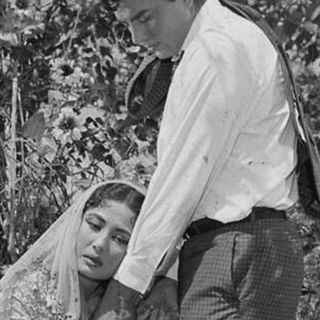
Can We Move On: From the Trope of the ‘Controlling’ Girlfriend
The trope is often used to vilify a woman for simply knowing what she wants, or making reasonable demands of her partner.

In Can We Move On, we revisit old tropes and question whether they have any remaining cultural relevance.
The premise of far too many (when there probably should’ve been none) Bollywood movies revolves around a devious, controlling girlfriend and her bechaara boyfriend. He puts up with her abusive behavior until — in a moment of glory — he breaks free from her with a grand speech that men’s rights activists continue to quote for decades after. Okay, the latter bit may be true primarily of characters Kartik Aaryan plays, but the trope of the controlling girlfriend is ubiquitous.
Nushrratt Bharuccha played it in Luv Ranjan’s Pyaar Ka Punchnama (PKP) — the original and the unfortunate sequel. They were different characters, mind you, who just happened to be written the exact same way. Unsurprisingly, yet again, Nushrratt Bharuccha found herself embodying the same traits in Sonu Ke Titu Ki Sweety — yet another film with the same cast, the same writer, and the same director. Basically, kindling the fire of misogyny that dwells in the hearts of people who equate feminism with fascism and believe cis-hetero men’s rights are more endangered than the Great Indian Bustard, and minting money by pandering to their hatred for women.
The grapevine suggests fans of the PKP franchise will be bestowed with a third installment, too. However, Luv Ranjan didn’t start the trope. It has existed for a long time in Bollywood — from Suchitra Pillai’s character in Dil Chahta Hai to Kalki Koechlin’s in Zindagi Na Milegi Dobara to Adah Sharma’s in Hasee Toh Phasee.
The sexism in these scripts is a close cousin of the misogyny inherent in the ‘husband-wife jokes’ on family WhatsApp chats.
When women criticize the caricature-esque, blatantly harmful representation of women in these movies, they’re told they need to “stop being so sensitive” and “learn how to appreciate the humor.” After all, it’s just a movie, right?
But the humor they’re so happily parading is disparagement humor, or an “attempt to amuse through the denigration of a social group or its representatives.” Disparagement humor is paradoxical. It conveys two conflicting messages simultaneously — first, by targeting a group through a prejudiced, explicit message, and second, by gaslighting people who criticize it into thinking they’re overreacting saying it doesn’t really count as sexism because it’s just a joke.
Promoting these prejudices harm society at large, especially women. “While jokes don’t create hostility towards women, it reinforces the prejudice where it exists. Essentially, if you joke about stereotypes in women and get the laughs you are vying for, those who are already hostile to women will see this as a social green light for their views,” Pallavi Prasad wrote about misogynistic humor.
Related on The Swaddle:
Can We Move On: From the Posh Girl Trope That Uses Privilege to Justify Misogyny
She cites research that found exposure to sexist humor led men, who already exhibited a degree of hostile sexism in their views, to have an even greater tolerance to sexual harassment in the workplace, as well as a greater willingness to rape women. Another study found that men who were more hostile towards women, also recommended larger funding cuts to a women’s organization at their university, after watching sexist comedy skits. As Prasad wrote, the jokes may not birth hostility towards women, but they certainly encourage and reinforce existing hostility.
Moreover, this trope is sometimes used to paint even reasonable behavior by female characters in a bad light. Take Soha Ali Khan’s character in Dil Maange More, for instance. She refuses to sacrifice her ambition of becoming a flight attendant for her college boyfriend, who doesn’t want her to ever leave their hometown. However, the audience is supposed to hate her because she’s controlling, and refuses to let him play football — fine, fair, he has a right to pursue his passion. But the movie simply uses that as a device to turn the audience against her, and so much so, that we’re supposed to feel bad for poor, heartbroken Shahid Kapoor’s character when she eventually leaves the town to enroll at a vocational training school as she had always intended to. Why is it fair to deem her controlling for stopping Kapoor’s character from playing football, but treat his refusal to let her go as love?
Similarly, in Shaadi Ke Side Effects, we’re supposed to hate Vidya Balan’s character for expecting her husband to be a responsible parent to a child he helped create. How dare she!
This trope vilifies a woman on one hand, and on the other, uses the negative impression of her it has created on the audience’s mind, to subtly criticize any move where she asserts her independence, or makes reasonable demands of her partner.
On a lighter — and even simpler — note, if the trope was truly just humor, and nobody took it seriously, Bharuccha would probably not have had to deal with people actually hating her in real life because of characters she was paid to play in movies. If the audience struggles to understand that fictional characters are, well, fictional, should we really be peddling narratives vilifying women; especially in a society where women are already struggling against gender stereotypes? Who can really deny the role of movies and television in reinforcing, if not creating, quite a few of them?
I rest my case for retiring the controlling girlfriend trope. While we’re at it, I’d also like to gently remind all of Kartik Aaryan’s characters that they are perfectly within their rights to not date women they find obnoxious — instead of ranting about it later, and inspiring generations of men to believe women exist simply to make their otherwise amazing and fulfilling lives miserable.
Devrupa Rakshit is an Associate Editor at The Swaddle. She is a lawyer by education, a poet by accident, a painter by shaukh, and autistic by birth. You can find her on Instagram @devruparakshit.
Related


The Buzz Cut: Camila Cabello Is the First Latina Cinderella. But Is Reimagining Old Fairy Tales Enough?
